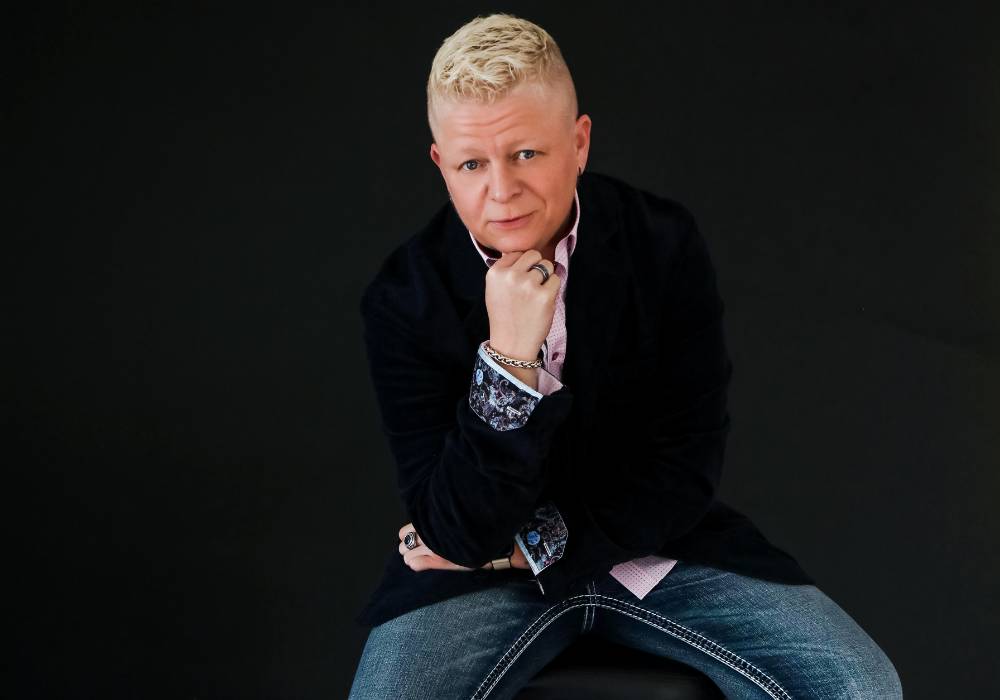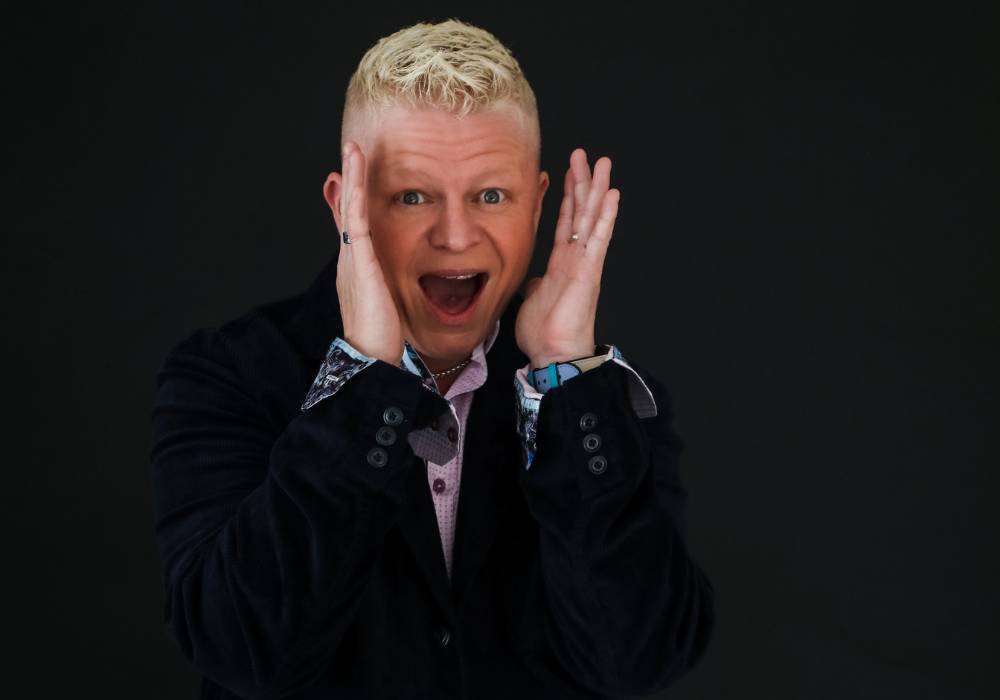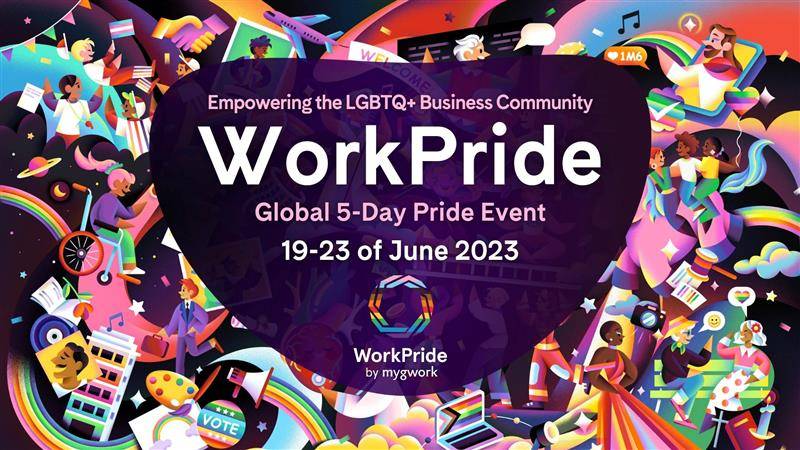
“It Must Start with Listening to Trans People”: Liam Paschall on Allyship
Business
myGwork spoke to Liam Paschall, Global Training Business Partner (Associate Director) at Parexel about the importance of trans inclusion in the workplace, the role of allies and how organizations can ensure they’re creating safe, welcoming working environments for everyone.
Hi Liam, thank you for taking the time to talk to us! To start with – what advice do you have for allies to the trans community?
There are so many ways, but I think it must start with listening. Allies need to actively listen to what the trans people in their communities are saying, and make sure that, in their work as an active ally, they are focusing on trans people more.
Listening is a continuous conversation and actions being taken about things that may affect the trans community – even things that non-trans people would consider to be simple or “small” – the language used in conversations, having restrooms accessible to all genders (all-gender or gender-neutral), creating environments that feel comfortable for trans people to talk about the issues that affect them.
Also, when it comes to listening to trans people, allies need to understand that trans people come from all different backgrounds and have different lived experiences, and therefore have different needs. Asking trans people how you can best support them is a great first step.
Sometimes trans people aren’t out to everyone in their lives, so knowing who they aren’t out to can be necessary, so you don’t accidentally out them and put them in a potentially uncomfortable or dangerous position.
Another way is for allies to be more trans-inclusive is to state their pronouns and use gender-inclusive language. Simply changing some of the words you use can make a better, more trans-inclusive environment. And though I could list so many more, I would say that allies need to recognize that being transgender is not a choice, and it’s not about how someone looks or dresses or carries themselves.

And what advice would you give organizations to ensure they are fully inclusive of the trans community?
I could provide a 2-page list of answers to this question. But I’ll try not to be too long-winded on this. It starts with the company, leadership at all levels, and all employees creating a psychologically safe workplace – where all transgender employees feel comfortable bringing their authentic selves to work – where they are free from judgement, bullying, and harassment and are treated the way they want to be treated and given the same opportunities as everyone else.
Organizations should incorporate gender-identity-specific nondiscrimination policies and practices throughout the company. That involves protecting and promoting the rights of people of all gender identities and expressions and increasing employees’ understanding and acceptance of their trans colleagues.
They should also institute gender-neutral/gender-inclusive restrooms or at the very least encourage trans employees to use restrooms that align with their gender identity – without fear. Organizations should implement gender-neutral dress codes. Pronouns and the use of correct names should be top of mind for all organizations.
Organizations should make it painless for employees to change their chosen and legal names as well as gender (of course following appropriate regional and country-specific laws with regards to the legal aspects). Companies should have a way to keep records of employees’ chosen names and correct pronouns. They should encourage all employees, including people leaders, to use name badges and email signatures that include their preferred names and correct pronouns. Training programs, onboarding initiatives and employee handbook content should include language around the importance of proper pronoun usage.
Organizations should support gender transitions. They should ensure transitioning employees have access to healthcare benefits that are gender-identity-specific. Trans employees should be asked what they need during their transition and how they want the process to be handled in the workplace. An organization’s HR employees should be able and willing to provide information concerning where to learn more about treatment options, support groups within the organization, and other resources. HR should also develop strategies to help trans employees manage work/life issues that may arise during their process. This includes helping their direct managers with these meetings if the employee is comfortable doing so.
Every single people leader/manager at all levels must proactively cultivate a supportive work environment…and if some are not supportive and try to use harassment and bullying/threats towards trans employees, those leaders should be held accountable (up to and including termination). Trans-specific diversity training should be developed and should be required for every employee within an organization. This will help all employees develop the skills to become active allies and supportive colleagues.
Have you always been out in the workplace?
I’ve been out as a lesbian for nearly my entire career. But I didn’t feel comfortable coming out as transgender until I worked for Cisco.
And what was your experience transitioning – were you offered the support you needed?
I never felt safe transitioning until much later in life (due to where I grew up, family beliefs…and later the companies I worked for). I didn’t come out as trans until last year. I’m 49 years old now. My experience hasn’t been an easy one at all.
Not only did I come out much later than I would have hoped to, but I’ve also had hurdles, roadblocks, and complications at every turn. From complications (necrosis) during my gender-affirming top surgery last September to health issues related to the HRT.
Even though I’ve had an extremely difficult time as far as my physical health, everything else has been great. Both companies that I’ve worked for during my transition have been extremely supportive – so supportive I could write a book about it…and probably should.
My wife has been my biggest cheerleader (and the very best nurse) since I came out to her. Our kids (now adults) have been very supportive. I’m thankful for my wife’s family because they have been extremely accepting and supportive (minus the occasional slip-up with my name or pronouns – though they have improved). My family, on the other hand, has disowned me. My father hasn’t spoken to me since the day I told him I was transgender last February.
All in all, I’m extremely grateful for all the “good” in my life, for the people who love and support me, for the doctors and nurses who have provided me with inclusive healthcare and compassion, for the friends and colleagues who have been by my side cheering me on from the very beginning…I’d say that my experience, though it has been a bit of a rollercoaster, has been better than that of many others.

Do you have any role models or corporate role models?
My role model growing up was my grandmother. She raised me from the time I was 18 months old. She will always be the person I call “my hero” because had it not been for her, I don’t know that I would have had the emotional strength and will to survive.
I can’t say that I have a corporate role model right now. I have some that I think might be close to what I feel a corporate role model should be…but not quite there yet. I think the closest person would have to be Dan Price, founder and CEO of Gravity Payments, a credit card processing company.
Why? Because he understands that human beings are at the heart of his company and that he is no more important than any of the people he employs. This CEO took a walk in the woods with a friend who was struggling to live on less than $50,000, about a million dollars below what he was making. Just about two weeks later, he instituted his minimum wage of $70,000 and challenged others to follow him. He has since sold all his stocks, emptied his retirement accounts, and mortgaged his two properties -- including a $1.2 million home -- and poured the $3 million he raised into his company. And based on everything I’ve read and all the research I’ve done on him, he’s one of those people who just look at people as human beings, including LGBTQ+ people.
This was a tweet he posted in 2020: “This is a great day for LGBT workers - to have protection enshrined into law. But if you're a CEO and needed a law to tell you not to fire a person because they're gay - you shouldn't be a CEO.”
Do you have any advice for coming out in a job interview?
I’m out on LinkedIn and very vocal. I also own my own company, GenderBend Consulting, LLC and have a website that includes pictures, blogs and videos from my transition journey – including pictures of my chest right after my gender-affirming surgery, when I started experiencing the necrosis. I don’t try to hide.
My philosophy is, “If you can’t share who you really are in a job interview, why would you WANT to work for that company?”.
How do you think you can personally contribute to changing your organization’s culture for the better?
Most importantly – being my authentic self at work and not hiding who I am, including having the courage to share my transition journey, as well as the roadblocks and hurdles I face as a transgender man. I will continue to speak up and stand up for those who can’t do that for themselves.
Paraxel's Liam Paschall will be speaking at myGwork's WorkPride 2023: The Do's & Don'ts of Trans Inclusion on Monday June 19 at 13.00PM BST. Click here to register for free.


